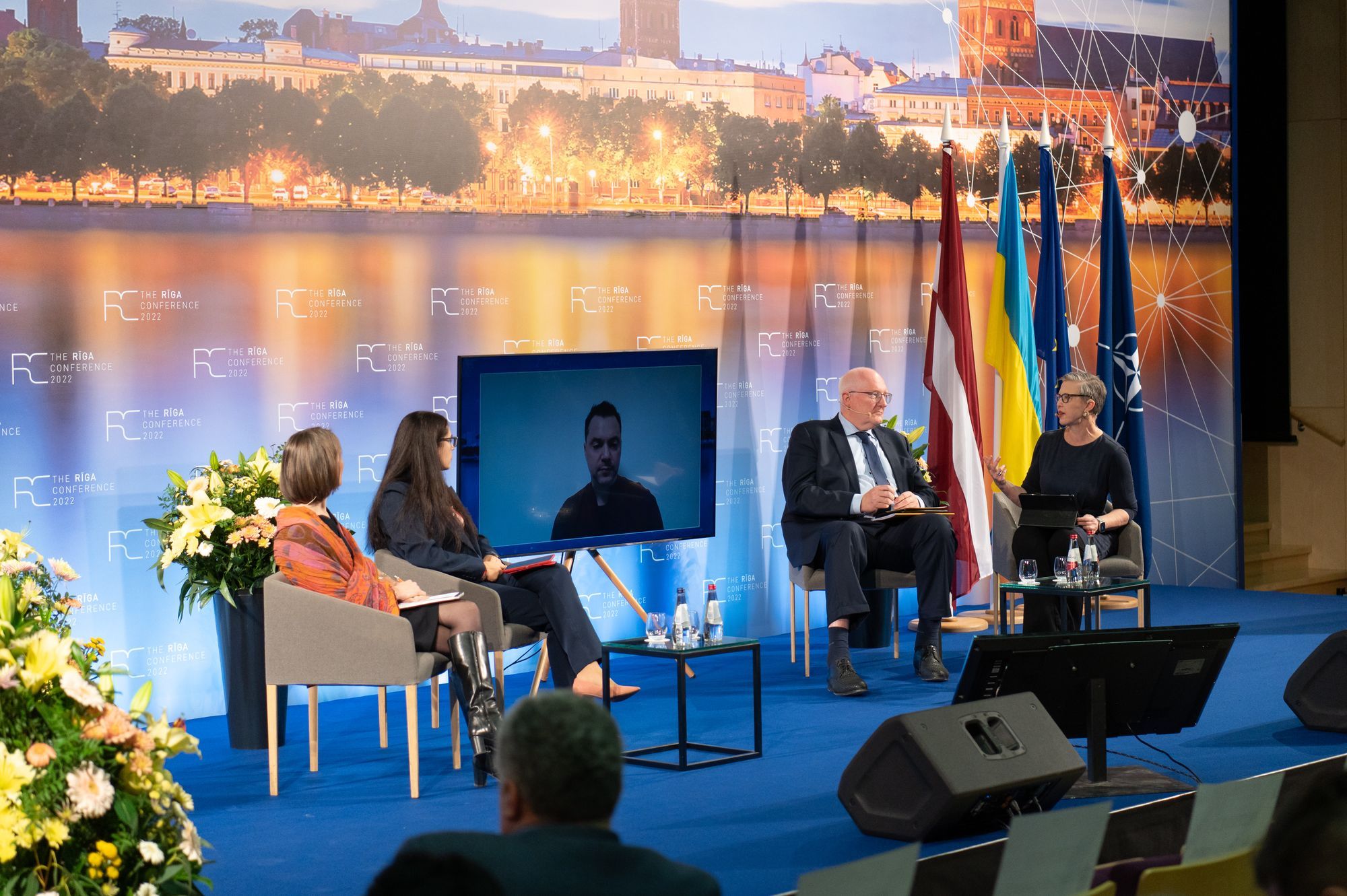Coverage from The Rīga Conference 2022.
„Putin does not want to negotiate. He has made that clear. The fact that Russians make energy supply more difficult proves that. Putin is committing war crimes against civilians,” – said Aleksey Arestovich, Adviser to the Head of the Office of the President of Ukraine. Experts discussed at The Rīga Conference 2022 how the future of Europe is linked to the future of Ukraine.
Claudia Major, Head of the International Security Division at the German Institute for International and Security Affairs, highlighted that the panel’s title (Ukraine’s Victory Before Peace) is telling. Ukraine must win before a real peace can come, as the negotiations are based on military realities. Moreover, a distinction must be made between real negotiations and simple conversations. As negotiations would concern Ukraine’s future, they can only happen after a Ukrainian victory. But until then, talks are needed that reduce the risks caused by war.
„A negotiation is only a tool, not the main goal,” – added Hanna Shelest, Editor-in-Chief of Ukraine Analytica. She already found the subject of the proposed negotiations interesting: why should we discuss the status and future of Ukraine; why is Russia not the topic? Ukraine has repeatedly invited Russia for talks, but Moscow’s position remained unchanged. In fact, Russian statements are increasingly taking on a Nazi tone. Russians talk about the elimination of the Ukrainian people and the „re-education” of Ukrainian children, signaling that Moscow does not want peace. Thus, we cannot expect too much from the negotiations. The topic must concern whether, in the future, the Russian Federation or any other state could behave in the way Moscow is acting now. The bargaining power of the parties has also changed completely. Ukraine, or the Western countries, would have had different aims at the negotiations if they had occurred during the first days of the invasion, when everyone believed the war would be a three-day blitzkrieg, than now, when it is evident that Ukraine can defend and reclaim its territory. There are talks about prisoner exchanges and grain, and specific, tactical background discussions also take place. The situation is similar to a bank robbery where we can say that we do not negotiate with terrorists, but if hostages are taken, we must make a deal with the robbers. But these scenarios are not negotiations; they are risk minimization.
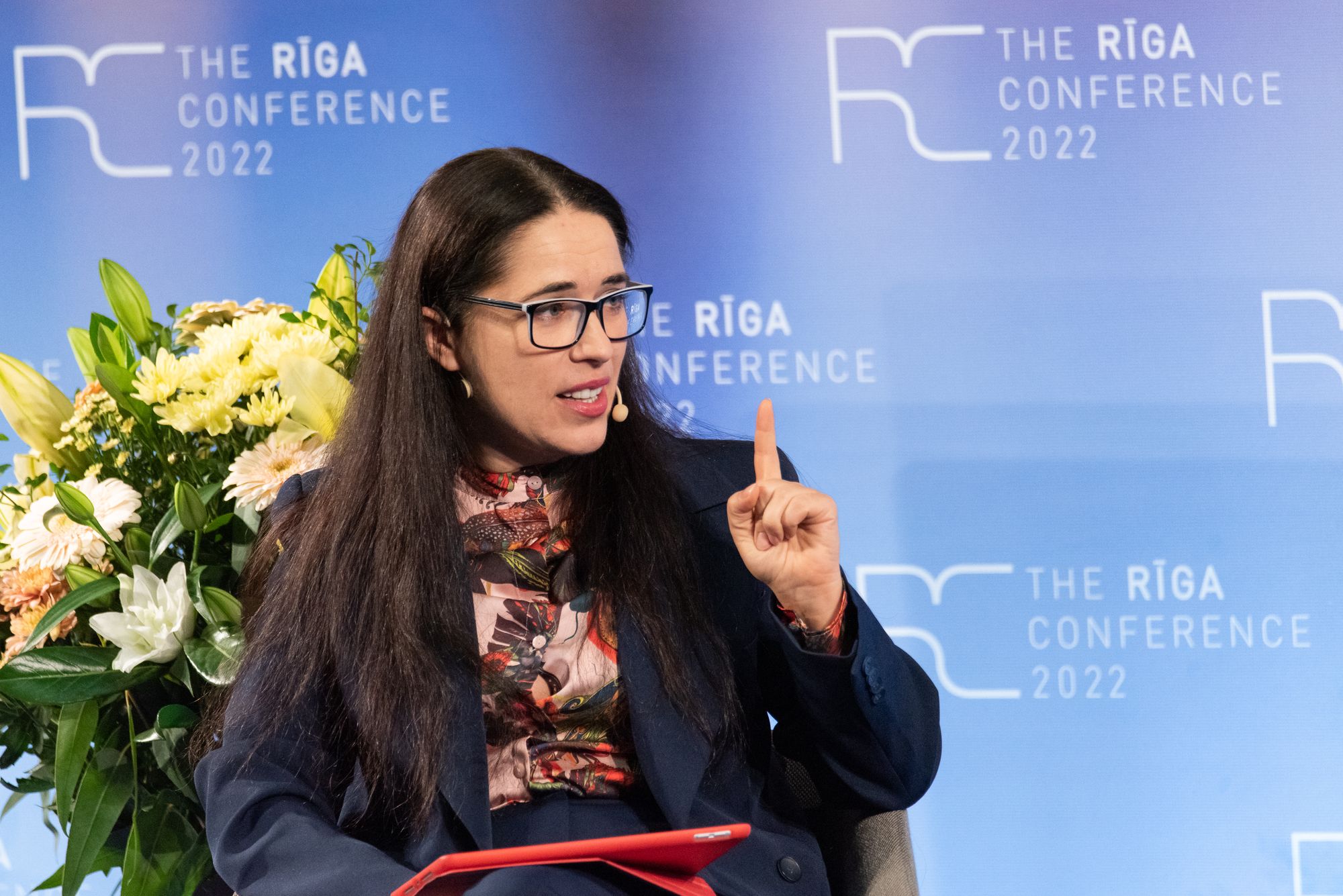
Thomas Kleine-Brockhoff, Vice President of the German Marshall Fund’s Berlin Office, believes the Ukrainian interests are not only concerning Putin. According to him, the Ukrainians have set four conditions for the negotiations: territorial integrity, economic reparations, war crimes trials, and Putin’s removal. Kleine-Brockhoff would personally add a fifth condition: the return of abductees, especially kidnapped children. These conditions are in place, but the parties are not yet in the phase of negotiations. Wars usually end with negotiations, but we cannot yet know the circumstances of the future negotiations which will end the current Russo-Ukrainian war. But already now, we should give some space to start talks, and we need to have a vision of what a post-war Ukraine will look like. We need to imagine a world for Ukraine to make it later a reality.
According to Arestovich, Ukraine is experiencing disasters every day. Putin is making threats not only to Ukraine but to the whole of Europe. He blackmails us with economic issues, limits our energy supply, and wants us to freeze. Putin negotiates with rockets instead of a pen. He does not even want to win the war; he just does not want to lose it, as that would mean death to him politically. At the moment, Ukraine needs three things very much: weapons, weapons, and weapons. With weapons, Kyiv could win the war, and the world could get rid of Putin. Another problem is that there is no clear vision ahead of us; we do not know how to build the world after a Ukrainian victory, and we do not know what the Russia-Ukraine relations would be after such a scenario. Regarding energy supply, Arestovich believes Russia cannot shut down all 16 reactors of the Ukrainian nuclear power plants. Moscow can cause problems, but those cannot lead to a complete shutdown. So Ukrainians will not freeze to death.
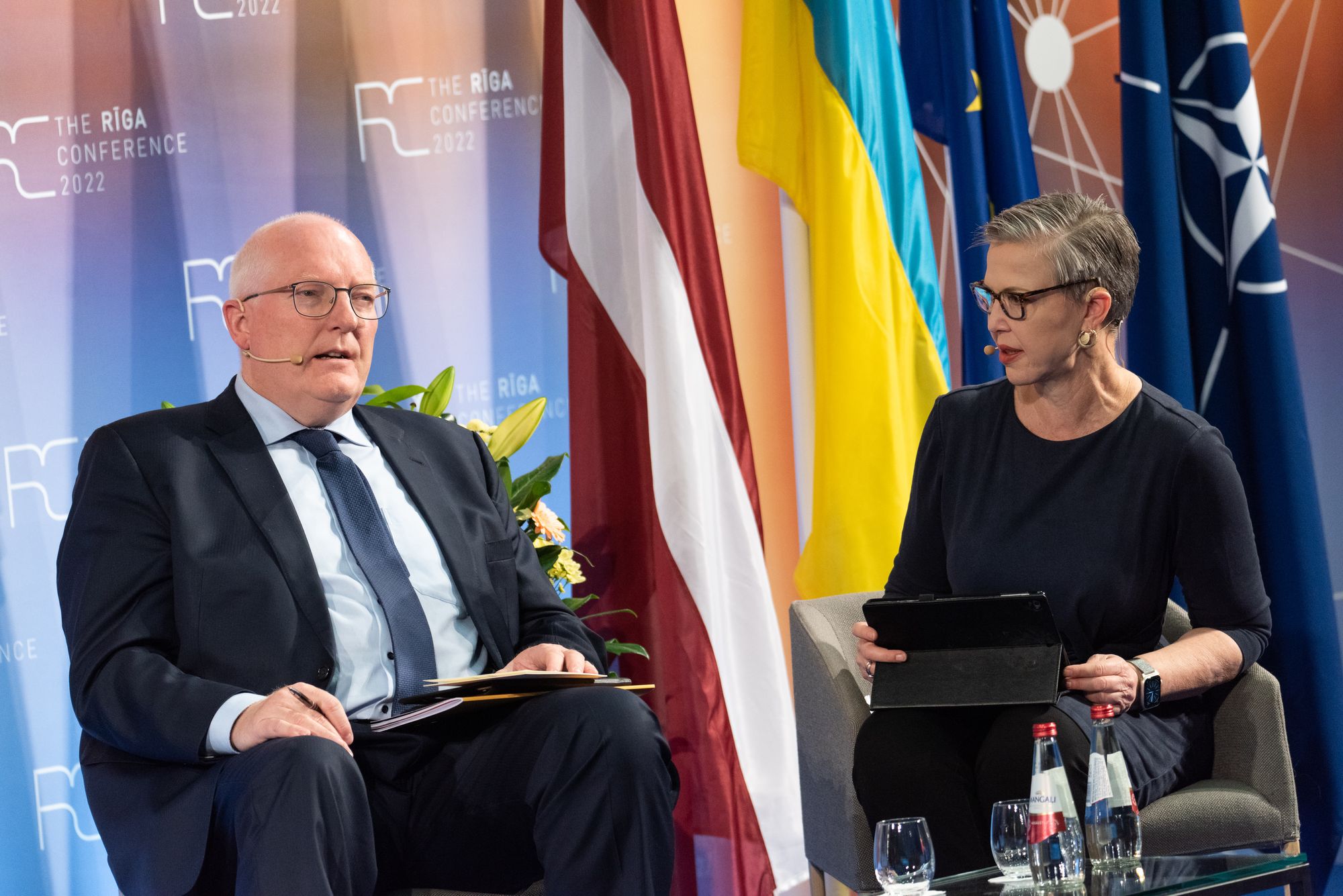
Kleine-Brockhoff noted that Putin is really creative regarding putting Ukrainians in an impossible situation. Ukraine was able to remain an energy exporter during the first months of the war, but it is alarming that Russia could destroy 30 percent of Ukraine's power plants in 10 days. Western countries need to make a „survival package” for Ukraine, including the energy grid problems. A rapid response is required from the West, and we must help Kyiv to rebuild the attacked and destroyed energy infrastructure.
The situation is nuanced by Major’s view on the subject. She argued that we should see the larger picture: Ukraine may be winning the war, but it is losing economically. Ukraine’s GDP is expected to fall by 35-40 %, and the country needs $5 billion monthly. This huge amount of money is not coming fast enough. Ukraine needs our support during the next winter, not only in terms of energy or weapons but also politically. We have to adequately deal with Ukraine’s war-caused economic losses together; we must tackle it somehow.
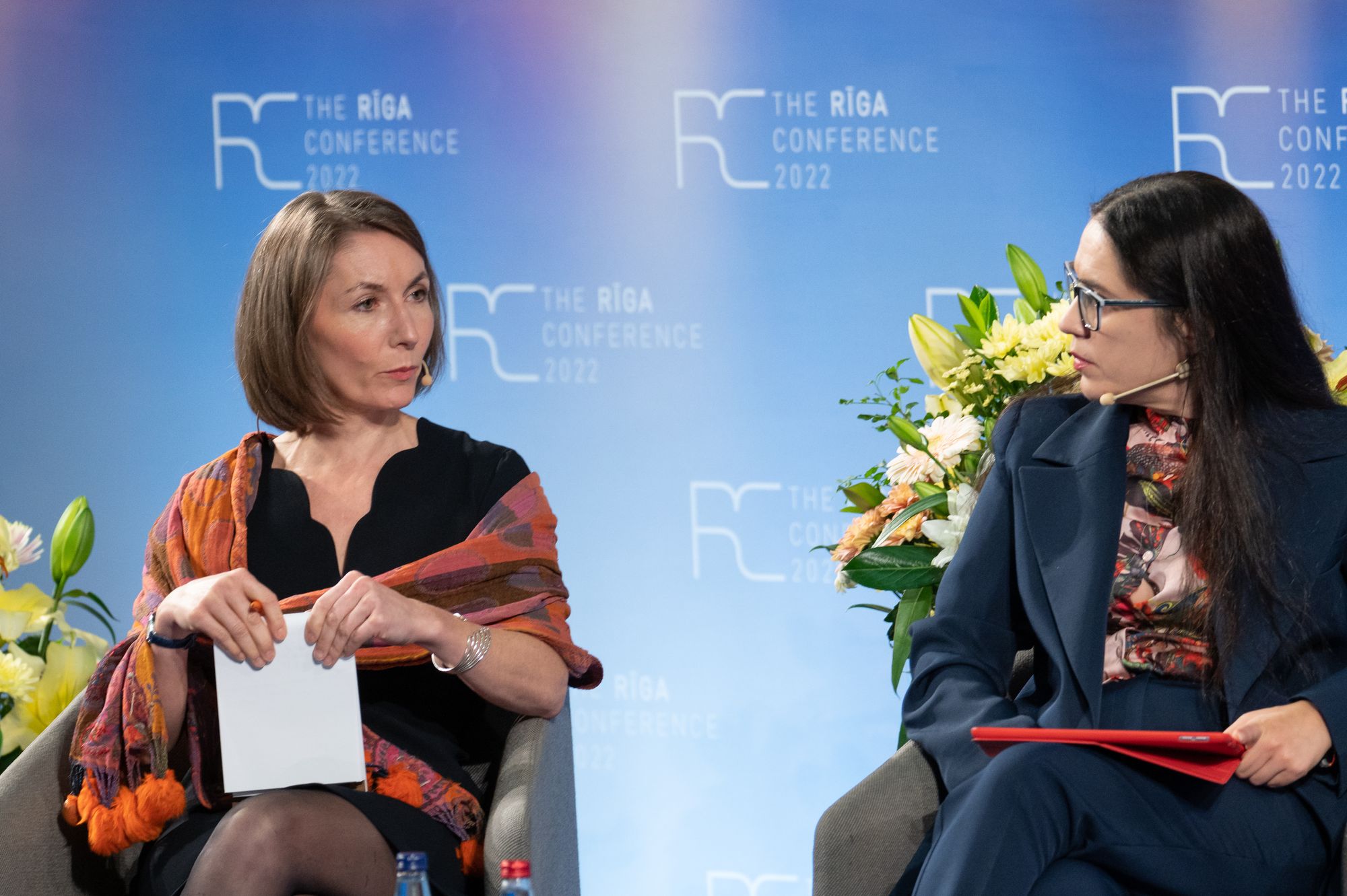
The diversity of the panelists is a great advantage as we can hear more differing perspectives. Shelest said it is interesting to see how people view the war, what they consider victory and defeat. Ukrainians now do not think about victory or defeat; they think about survival. In the West, ordinary people still talk about what kind of milk they want their coffee with. Maybe it is a bit more expensive than last year, but it does not really bother the people. People in Western countries buy iPhones, while Ukrainians buy thicker socks to prepare for the winter. They insulate their homes and buy candles for lighting. They prepare but do not panic, as the current situation is the new normal. Shelest recalled that she was wearing gloves in class in 1998. It is not a problem if one’s feet are on the ground. Beyond weapons, the Ukrainian people need practical help, like water filtration equipment which they got from Japan. Such everyday tools help to keep Ukrainians’ existential stability.
Arestovich, the other panelist who lives in Ukraine, agreed that the war is about survival. He added that Russia’s goal is to make the Ukrainian people disappear. They want Ukrainians to be Russians. But Ukrainians do everything to resist; they cope with the cold winters, economic crises, or even a nuclear war. The problem is that Ukraine needs more money than mentioned before; Kyiv needs $9 billion a month, not $5 billion. And Ukraine receives only a small fraction of this amount. Moreover, the West must also morally condemn Putin; he should be held accountable for the war crimes committed in Ukraine.
The reconstruction challenges are daunting – added Kleine-Brockhoff. Ukraine already needs massive external assistance. The costs of the reconstruction investments will reach hundreds of billions of dollars. These investments will not only be public, and they will not only be Western; Ukraine will also have to invest in the country’s reconstruction. But we are not there yet to start to think about reconstruction plans seriously. At the moment, the military forces of Ukraine need all the money. If Ukraine is successful on the battlefields, less reconstruction will be needed as less infrastructure and buildings will be damaged.
At the end of the panel, Shelest highlighted that two things must be understood. Firstly, in most cases, the problem is not the amount of money, but that it does not arrive fast enough. Often, a certain amount of money is earmarked, but the disbursement does not start. So, Ukraine cannot plan with it. Secondly, Ukraine must create the environment for its economy to function again properly. The supply chains are not working, so, in many cases, the grain or the lamb cannot get out of the country, which slows the Ukrainian economy. Therefore, pumping money into the economy may not be sufficient.
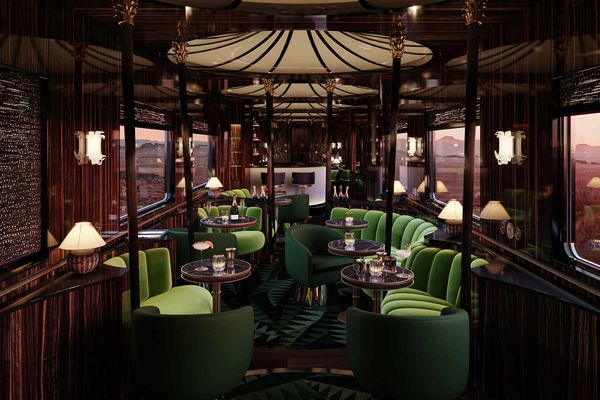
This is how the Orient Express carriages, connecting East and West, were renewed
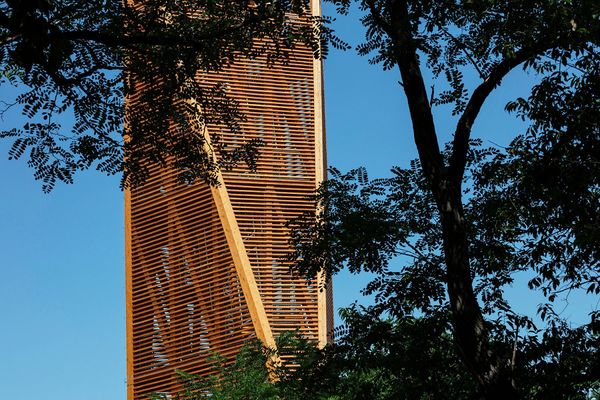
Hungarian architectural studio named one of the public vote winners of the Dezeen Awards 2022










